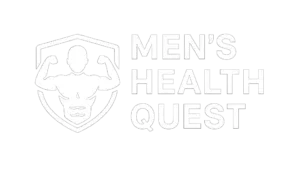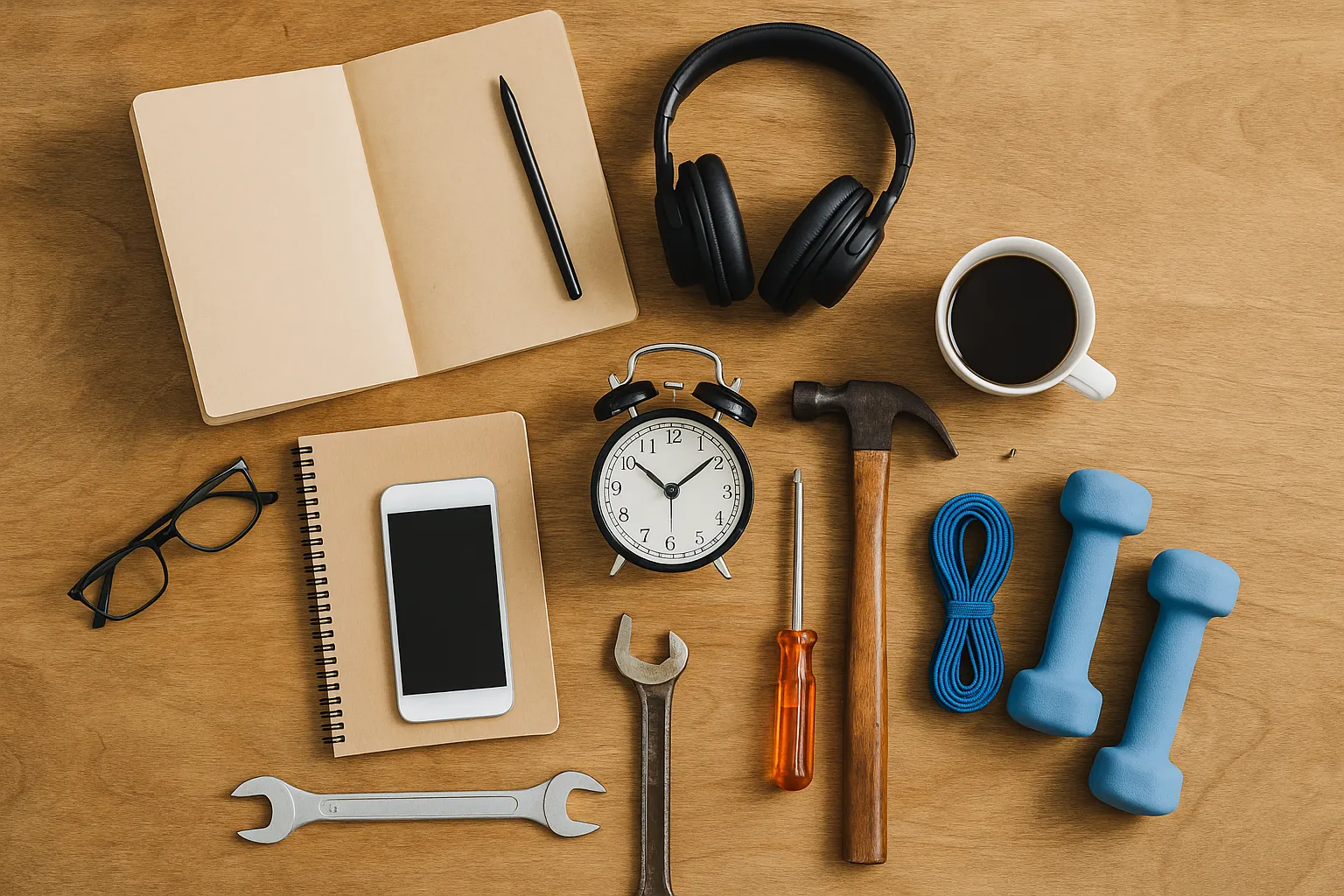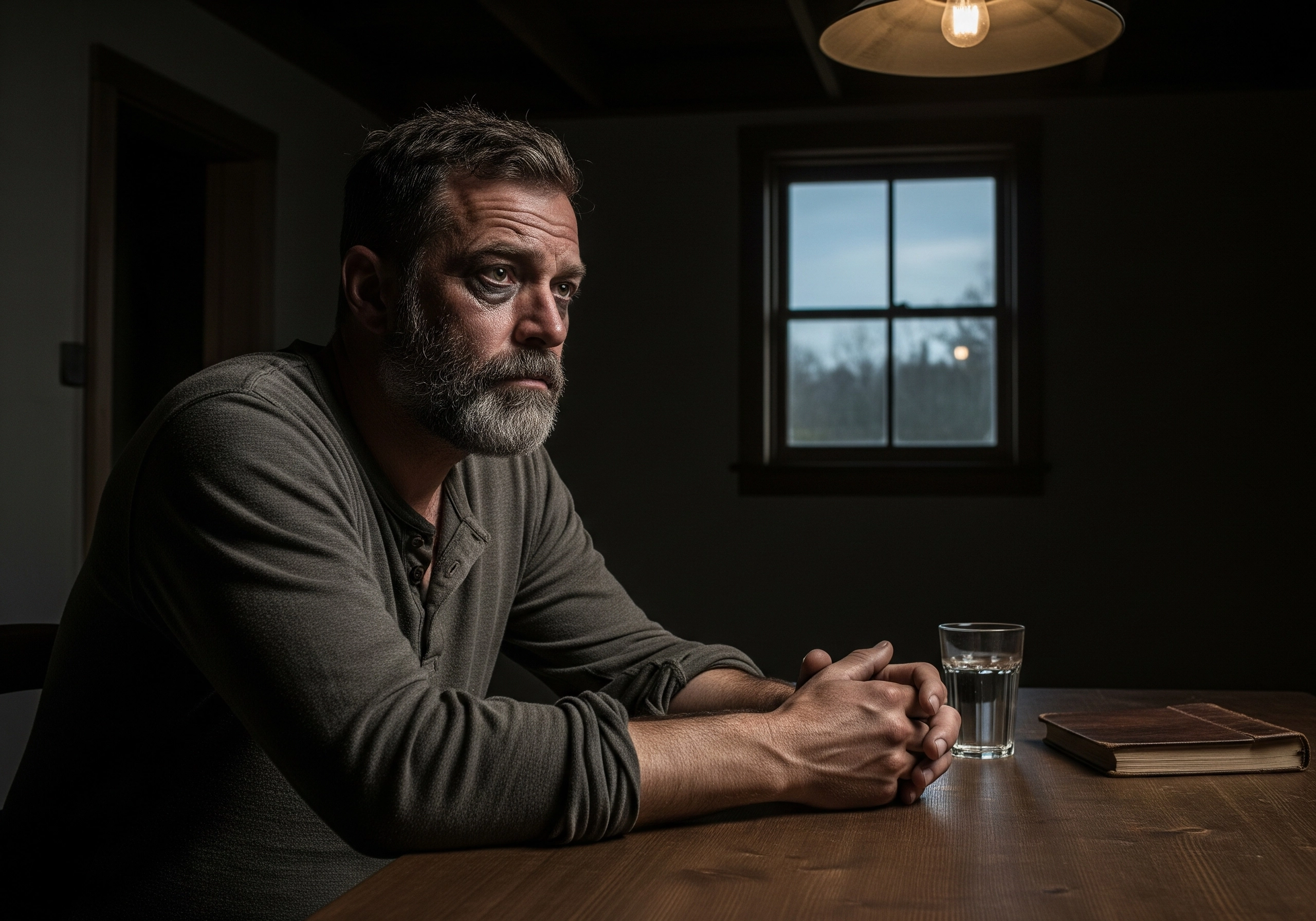The Mask I Didn’t Know I Was Wearing
For years, I wore a mask that no one questioned. I was the guy who had it all together — calm under pressure, reliable at work, polite in social settings, and always ready with a joke or quick answer. From the outside, I looked like I was winning at life. Inside, I was slowly unraveling.
The truth is, I didn’t realize I was struggling with depression. I thought I was just tired. Stressed. Burned out. I told myself it was normal to feel disconnected, irritated, or numb. I convinced myself that everyone goes through phases where life feels gray. But this “phase” didn’t pass. It lingered. It deepened. And eventually, it began to consume me.
What makes depression so insidious for many men is how quietly it settles in. There were no breakdowns, no dramatic collapses. Just small withdrawals — from friends, from interests, from myself. I didn’t cry. I didn’t collapse. I just… faded.
The Silent Descent
Depression for me didn’t start with sadness. It started with emptiness. I lost interest in things I used to enjoy. Music didn’t move me. Food didn’t taste good. Conversations felt like chores. I stopped reaching out to friends. I avoided plans. I stayed up late and slept too much. My motivation vanished.
At work, I still performed — barely. I smiled in meetings, answered emails, met deadlines. But it all felt mechanical. I wasn’t present. I was playing a part, and every day took more energy than the one before. The mask was still on, but underneath, I was disappearing.
And I told no one.
I didn’t want to be a burden. I didn’t want to seem weak. I didn’t want to admit that the guy who “always kept it together” was falling apart.
I kept telling myself I could fix it on my own. That it would go away. That I just needed a weekend to recharge or a vacation to reset. But nothing helped — because the real problem wasn’t exhaustion. It was depression.
Why I Didn’t Ask for Help
I grew up believing that asking for help was a last resort. That real men handle their problems. That emotions are something you deal with quietly, privately — or not at all. Vulnerability was never modeled, so I didn’t recognize it as an option.
Even when I started Googling symptoms — fatigue, emotional numbness, isolation — I told myself I was being dramatic. I kept scrolling past the word “depression” because it felt too heavy, too final. I didn’t want that label.
But beneath that denial was fear. Fear of judgment. Fear of being misunderstood. Fear that if I said something out loud, it would become real — and I didn’t feel strong enough to face it.
So I stayed silent.
The Breaking Point Came Quietly
There wasn’t one moment where everything exploded. There was no crisis that forced me to act. What finally broke me was the realization that I didn’t recognize myself anymore. One morning, I looked in the mirror and didn’t see the man I remembered. I saw someone exhausted, hollow, and lost.
I wasn’t living — I was existing. And I was tired of pretending.
That day, I didn’t go to work. I sat on the floor of my apartment and admitted something I had never said before — not to anyone else, not even to myself: I’m not okay.
That moment of honesty, though terrifying, was the first sign of strength I had shown in months.
Reaching Out Took Everything I Had
I didn’t know who to talk to or what to say. So I started small. I messaged a friend and simply said, “I’ve been going through something. Can we talk?” I didn’t go into detail. I just opened the door.
That conversation didn’t solve everything, but it reminded me that I wasn’t alone. That there were people who cared. That I didn’t have to carry the weight by myself.
The next step was even harder: I booked an appointment with a therapist. It felt like a betrayal of everything I thought I believed — that I should be able to fix myself, that therapy was for people who had it worse. But I went. And it changed everything.
Not overnight. Not dramatically. But slowly, steadily, I began to rebuild.
Learning the Language of Healing
In therapy, I learned that depression isn’t always loud. That it doesn’t always look like crying or staying in bed all day. Sometimes it looks like working too much. Laughing too loudly. Saying “I’m fine” too often.
I learned that I had emotions I never acknowledged — anger, grief, shame — and they had nowhere to go. They had turned inward, eating away at my sense of self. I had spent years numbing discomfort instead of understanding it.
And I learned something even more important: healing doesn’t happen in isolation. It happens in connection — to others, to ourselves, to the parts we tried to hide.
Recovery Isn’t Linear — It’s a Landscape
What surprised me most about recovery was how uneven it felt. There was no magical moment when everything clicked. No dramatic breakthrough. Just small shifts: a little more energy in the morning, a bit more clarity in conversation, a flicker of interest in things I used to love.
Then came a setback — a wave of numbness or fatigue — and I’d panic, thinking I was back at square one. But I wasn’t. I was learning that healing isn’t a straight line. It’s a landscape. Some days feel like forward motion; others like standing still. But with every step — even the painful ones — I was learning how to live with myself again.
Progress was found in the little things:
- Getting out of bed without negotiation.
- Calling a friend just to talk.
- Laughing, genuinely, at something stupid.
- Sitting in silence and not feeling consumed by it.
These were victories. Not because they were extraordinary, but because they reminded me that I was still here. Still capable of living.
Redefining Strength on My Own Terms
For years, I equated strength with silence. With holding it in. With being unaffected. But the deeper I got into therapy and reflection, the more I realized that real strength had nothing to do with appearing unbreakable — and everything to do with being real.
I began to let go of the version of masculinity that demanded I stay quiet. I started asking myself harder questions:
- Why do I feel ashamed of needing help?
- Why am I more comfortable hiding pain than expressing it?
- What if vulnerability is actually my most honest form of power?
These questions didn’t make me weaker. They made me aware. And with that awareness, I started making different choices. I talked more openly — not just in therapy, but with friends. I gave honest answers when people asked how I was doing. I allowed myself to feel uncomfortable emotions without immediately trying to fix or silence them.
And each time I did that, I became stronger — not because I was pretending to be okay, but because I was learning to be okay even when I wasn’t.
Rebuilding Relationships from a Place of Truth
Depression had quietly pulled me away from the people who cared about me most. I had stopped responding to texts. I canceled plans. I put up walls. It wasn’t because I didn’t love them — it was because I didn’t want them to see me when I didn’t even recognize myself.
As I began to heal, I knew I needed to repair those connections. Not with grand gestures, but with honest presence.
I reached out, not with apologies, but with openness. I explained that I had been struggling. That I hadn’t known how to ask for help. That I wasn’t disappearing because of them — I was disappearing because I didn’t know how to face myself.
The people who mattered understood. They didn’t ask for explanations or guilt. They listened. They welcomed me back. And from those reconnections came something deeper than before — trust built on vulnerability, not performance.
Finding Purpose in the Aftermath
One of the hardest parts of depression is the erosion of purpose. I had lost interest in my goals, my career, my hobbies — all of it felt hollow. But as I began recovering, I started asking a different question: What gives me life?
Instead of chasing what looked impressive on paper, I started paying attention to what made me feel grounded, curious, and connected. I returned to music. I started journaling, not as a task, but as a release. I got outside more — walking, running, sometimes just sitting and breathing.
And most of all, I found purpose in connection. In showing up honestly for other men who felt what I had felt — that ache of trying to hold it all together in silence. I didn’t become a therapist or speaker. I simply became someone who listened. Someone who could say, I’ve been there — and mean it.
Purpose, I learned, doesn’t have to be grand. Sometimes, it’s just being present. Being real. Being available for someone who’s still in the darkness you’ve come out of.
Creating a Toolbox for Mental Maintenance
One of the most empowering steps in my journey was learning how to maintain my mental health like I would physical health. Depression might not be cured in the traditional sense, but it can be managed — proactively and compassionately.
My toolbox isn’t fancy. It includes:
- Therapy – a space to process, reflect, and reset.
- Daily routines – grounding practices like morning walks, journaling, or silent coffee.
- Sleep hygiene – no screens late at night, consistent bedtime.
- Digital boundaries – social media breaks, mindful consumption.
- Movement – not for appearance, but for clarity and emotional release.
- Connection – checking in with a few trusted people regularly.
- Grace – reminding myself that hard days are not failures, just signals.
I use these tools not because I’m broken, but because I’m committed to staying whole. Because maintenance is strength. And caring for yourself isn’t indulgence — it’s responsibility.
If You’re Where I Was…
Maybe you’re reading this and nodding. Maybe you’ve been quietly fighting for months, years even, with a smile on your face and exhaustion in your soul. Maybe you don’t even know what to call it — just that something feels off, and you’re tired of pretending it’s fine.
Let me say this plainly:
You are not weak.
You are not alone.
You do not have to fix everything by yourself.
You are not beyond repair.
Whatever darkness you’re in right now, you’re not the only one. And you don’t have to stay there. Help is not a sign that you’ve failed — it’s a sign that you’re ready to live. Really live.
Start small. Tell one person. Book one appointment. Write down what you can’t say out loud. That’s where it begins.
I Didn’t Lose Myself — I Met Myself
Looking back, I didn’t just survive depression — I met myself in the process. I met the version of me that didn’t need to perform. The one who could be sad and strong at the same time. The one who could ask for help and still be capable. The one who could speak his truth and still be respected.
That version of me had always been there — buried beneath years of silence, fear, and expectations. Depression didn’t destroy him. It revealed what needed healing.
And healing didn’t make me less of a man. It made me more — more honest, more present, more whole.




